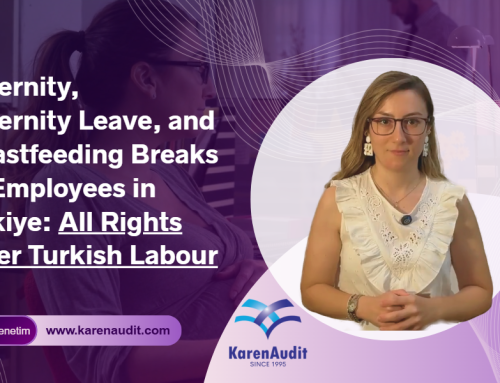17.07.2017
If you would like to sell your Limited Company shares with profit, firstly change the company type from Limited to Corporation and then issue shares.
Subject: In the event of changing the “limited company” that has a partnership to a “Corporation”, the explanations about the taxation of the income gained through selling the shares are indicated below.
1- What is the legal basis of taxation of the incomes gained by selling the shares of Limited Company and Corporation?
The provision about the taxation of incomes gained through the selling the shares of Limited Company and Corporation with profit are stated in the duplicated entry 80 titled “Increment Value Income” of the Income Tax Law.
According to this article;
1.1- The income gained by selling of shares obtained through inheritance (non-controversial)(virtual-inheritance and donation) is not subject to tax. (Duplicated Entry 80/4 of the Income Tax Law)
1.2- The income gained through the selling of shares which belong to institutions with full obligation and kept more than 2 years is not subject to tax. (Duplicated Entry 80/1 of the Income Tax Law)
1.3- The incomes gained through the selling of rights and shares will be subject to tax as increment value income. (Duplicated Entry 80/4 of the Income Tax Law)
2- Issuing Corporation shares and interim certificate is crucial.
2.1-If a Corporation does not issue shares or interim certificate, there will not be any tax advantages.
2.2- If the shares are sold with profit 2 years later after the issue date, there will be no increment value income and no matter how much profit a person gains through the selling of these shares, there will be no taxation. ( Duplicated Entry 80/1 of the Income Tax Law)
2.3- If the shares are sold with profit within 2 years after the issue date, there will be increment value income and they will be subject to tax.
3- Limited Companies do not issue shares or interim certificate.
3.1- Limited Companies have no right to issue shares or interim certificate like Corporations do. Thus, if limited companies’ shares are sold with profit (no matter how many years go by), there will be increment value income and they will be subject to tax.
3.2- If the selling/the transfer of a limited company’s shares are sold via notary, it will inure.
4-If you change Limited Company to Corporation at first and then issue shares, you may have tax advantage.
In the event of transfer and demerger of a company (including partly demerger) within the scope of article 19 and 20 of the Corporate Tax Law, the date of acquisition of shares given to the shareholders or the company is the date of acquisition of the shares of the company, which sells these shares. (Communiqué 1 of the Corporate Tax – article 19.3.3)
Changing the type of the company is regarded as transfer; the acquisition date will be the date when the shares are obtained by means of changing of company’s type.
It means that if a limited company is changed to a Corporation, the acquisition date of the shares should be the acquisition date in the limited company.
That issue is stated in detail in a sample special notice about the subject.
“In article 19 of the Corporate Tax Law numbered 5520;
(1) The conditions of the union about the enforcement of that law written below are regarded as transfer:
a) After the union, legal head office or business center of the defunct company and the united company should be in Turkey.
b) If the united company takes over the balance sheet value of the annulled company as a whole and it is recorded in its own balance-sheet.”
(2) There is a clause that changing the type of the company within the scope of conditions stated above is regarded as takeover.
In the event of turnover and demerger (including partly demerger) done within the scope of article 19 and 20 of the Corporate Tax Law in the section titled “date of acquisition of shares received through turnover and demerger 19.3.3” of the communiqué on Corporate Tax numbered 1, the date of acquisition of the shares should be regarded as the acquisition date of the shares of the disunited company.
On the other hand, it is decided that incomes gained by the transfer of real estates and other capital market instruments should be regarded as “Increment Value Income” (excluding voluntary acquired ones and shares kept more than 2 years and belonging to fully responsible companies), which is stated in the first sub clause of the first clause of duplicated entry 80 of the Income Tax numbered 193. Furthermore, in the second clause of the same article, “sellout” means selling the properties and rights indicated in this article, voluntary takeover and transfer, exchanging, interchange, nationalization, socialization, using as a capital in commercial companies.
5- SUMMARY
In order to benefit from tax advantage for increment value income gained through the selling of shares;
5.1- If you keep your shares in Limited Company more than 2 years and satisfy the criterion stated in article 19 and 20 of the Corporate Tax Law,
5.2- Change Limited Company to Corporation by changing its type.
5.3- After the change, issue an interim certificate and share.
5.4- If the criterion stated above is satisfied, you do not have to pay tax for the income gained through the selling of shares.
Ali KARAKUŞ
Source:
1- Article 19 and 20 of the Corporate Tax Law numbered 5520
2- Communiqué 1 of Corporate Tax Law numbered 5520
3- Duplicated Entry 80 of Income Tax Law
4- General Communiqué of the Income Tax Law numbered 232






